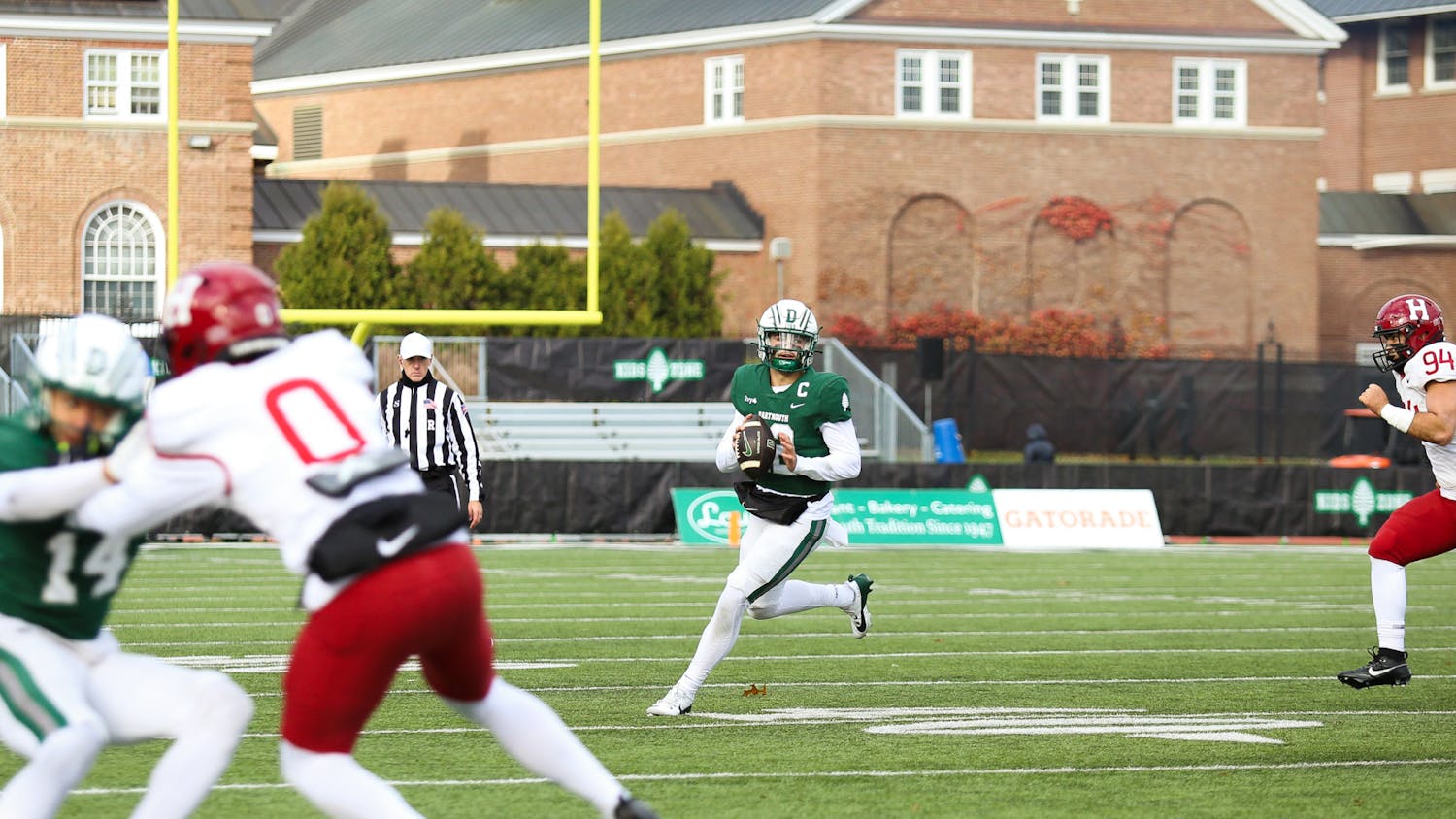Many students at Dartmouth may have experienced a fear of inadequacy after their admission to the College — a fear that their accomplishments are the result of serendipity rather than actual ability. It turns out that men are just as likely as women to experience imposter syndrome, according to a recent article published in Inside Higher Ed by associate dean of students and admissions at the Geisel School of Medicine Roshini Pinto-Powell. Imposter syndrome is a psychological pattern whereby an individual doubts their accomplishments and fears being exposed as a fraud.
Pinto-Powell noted that she has observed more cases of men experiencing imposter syndrome during her years of working with students as an advising dean and teacher in the medical field.
“In the last five years, I’ve seen that [the number of men experiencing imposter syndrome] is definitely slowly increasing,” she said. “That was something that really surprised me and I wanted to call it out.”
Pinto-Powell said she did not view imposter syndrome as a diagnosable medical condition, but instead as a term used to describe an internalized feeling common in students.
“To me, it’s not so much of a diagnosis in the medical sense,” she said. “It’s a feeling of inadequacy, [a] feeling of being exposed as a fraud.”
Brian Reed, associate dean for student academic support services and dean of undergraduate students, said he also considered imposter syndrome as a kind of feeling, rather than a medical condition.
“I don’t know if [students] could name it as imposter syndrome or articulate it,” Reed said. “[Students] will come in and talk about classes, D-Plan, study abroad [opportunities] and when [we] see that look of hesitation — that moment of anxiety — we sort of taught ourselves ... how to recognize [imposter syndrome].”
Pinto-Powell said it appears that more women experience imposter syndrome than men because women are more likely to discuss their feelings. She added that she anticipates a higher number of men reporting their feelings about imposter syndrome in the future as societal norms change to be more accepting of men sharing their emotions.
“In the last five to eight years, there’s [been] more and more men who are willing to talk about their feelings,” she said. “Whereas culturally in the society [of] the past, that wasn’t a common thing.”
Pinto-Powell also argued that imposter syndrome affects men and women differently.
“It seems almost that men are less likely to suffer from it, but when they do get it, it affects them more.” she said. “Because societally, I think they feel that they cannot admit [to suffering from imposter syndrome] if [it makes them appear] more inadequate.”
Lucas Mayer Med’20 said he experienced imposter syndrome during his first year at Geisel. Meyer added that he did not notice a difference in the numbers of men and women experiencing similar feelings.
“Completely anecdotally speaking, I feel like I know just as many males as females [who] happen to [feel] this inadequacy at some level,” he said.
Reed said he has seen more women than men experiencing imposter syndrome during his time working in the undergraduate deans office.
“Our experience suggests that [men] can feel that way,” Reed said. “But if you ask me about the percentages, I think it leans more to women.”
Reed added that imposter syndrome is more likely to affect marginalized groups.
“I think it’s particularly concentrated in first-generation college students, who don’t necessarily feel that they have the preparation [to attend Dartmouth] if they didn’t go to a preparatory high school,” he said.
Student Wellness Center director Caitlin Barthelmes related feelings of loneliness to imposter syndrome. Barthelmes said loneliness arises when students’ college experience differs from their expectations.
“We know that 73 percent of Dartmouth students who answered the health survey recorded feeling very lonely in the past 12 months,” she said. “When our experience isn’t matching up to those expectations of friendships or academic performance or any variety of things, that’s when we can often feel lonely.”
According to Reed, the College develops programs during first-year Orientation to help students handle imposter syndrome. He said that these programs provide “coaching and encouragement” and help students “find their confidence.”
“We get a lot of opportunities to work with groups like the First Year Student Enrichment Program, Native American programs, international student pre-orientation program and student athletes with their advisors,” Reed said. “We really start working with students to talk about [how] Dartmouth doesn’t make admissions mistakes.”
Pinto-Powell suggested that colleges and universities develop mentoring systems to combat imposter syndrome. She added that students should also set proper expectations for their college experiences and reflect on the circumstances of their past to be able to openly share their feelings with others.
Barthelmes pointed out that building relationships, expressing emotions appropriately and seeking help from resources can also help combat imposter syndrome.
“[It can help to try] to speak out and work to build supportive relationships in which you can be honest and authentic to someone else,” she said. “But it can also be reaching out to other resources like professional counselors or mentors or support people.”
Mayer said he was able to come to terms with imposter syndrome after speaking openly about it.
“I think putting a name to it and [speaking] hopefully about it really [allows you] to feel more at peace with how you feel,” he said. “[Understanding] that other people have the same symptom really helps you kind of get over it.”



